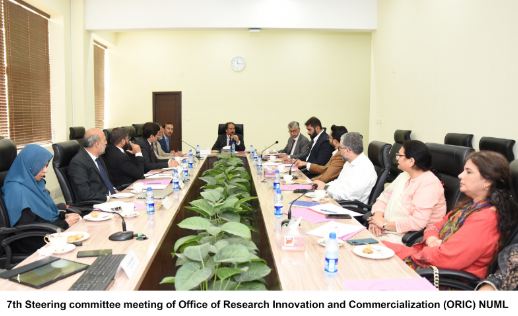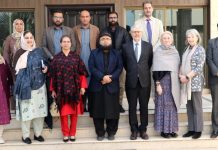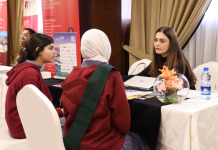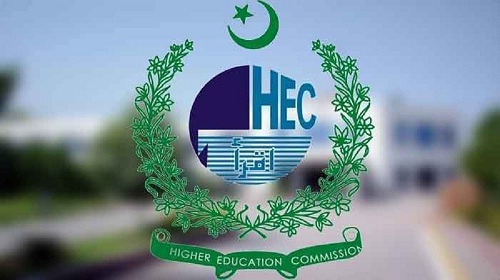ISLAMABAD, APR 9 /DNA/ – The 7th Steering Committee meeting of the Office of Research, Innovation and Commercialization (ORIC) was held at the National University of Modern Languages (NUML), Ibn-e-Rushd Block, on Wednesday.
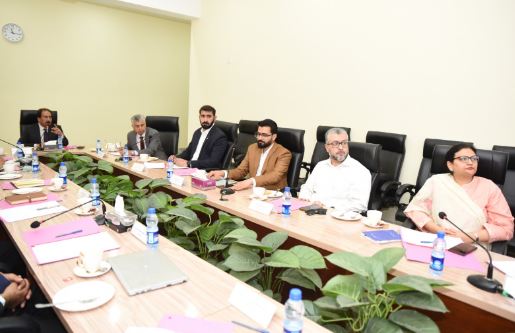
The meeting was chaired by Pro-Rector (Academics), Dr. Safeer Awan, and brought together prominent stakeholders from academia and industry to explore ways of bridging the gap between academic research and industrial application.
The meeting was attended by former Caretaker Federal Minister for Information and Broadcasting and senior media analyst Murtaza Solangi, a representative from the National University of Sciences and Technology (NUST), the Marketing Manager of Faisal Town, CEO Atom Global, and all Deans of NUML.
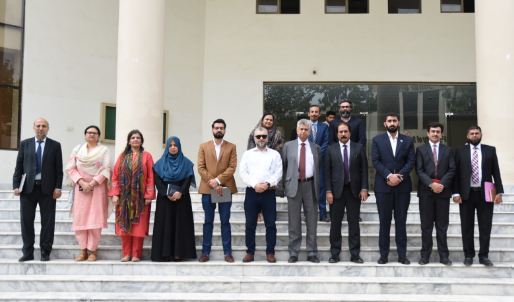
In his opening remarks, Dr. Safeer Awan appreciated the Higher Education Commission (HEC) for its initiative in establishing ORIC offices in universities, emphasizing that such platforms are crucial for fostering academic-industry linkages. He highlighted NUML’s commitment to this cause and stressed the need for deeper collaboration, citing the potential of NUML students in developing impactful software solutions under expert faculty guidance.
Dr. Atta Ullah, Assistant Professor and Director ITCON & BICON delivered a comprehensive presentation outlining NUML’s progress across various domains. He noted a significant improvement in the university’s performance on the HEC scorecard—rising from 40 to 68 points—and securing a place in the X-category (Top 11 institutions). He called for intensified efforts in the areas of innovation and commercialization, and showcased in-house software projects developed by NUML students.
Speaking on the occasion, the Marketing Manager of Faisal Town emphasized the value of joint ventures, stating that industry partnerships could not only provide practical training but also open up employment opportunities for students.
CEO Atom Global, Mr Waqas Ahmad identified the need to shift from a technology-centric to a function-centric approach, proposing platforms where students can gain practical exposure. He also pointed out current import restrictions on AI and quantum computing hardware, urging the creation of indigenous platforms with a “bring your own cup of coffee” culture to foster open, business-driven innovation.
Veteran media personality Murtaza Solangi underscored the importance of aligning academic theory with real-world practice. “When the organic connection between theory and practice breaks, problems arise. Practice is the mother of theory,” he noted. He highlighted the transformation in the media landscape due to technological advancements and expressed willingness to support student-industry linkages in the media sector.
The meeting concluded with valuable insights from all dignitaries on overcoming challenges and enhancing collaboration between academia, research institutions, and industry. Participants agreed on the need for sustained dialogue, joint ventures, and practical platforms to foster innovation, employability, and real-world impact.

